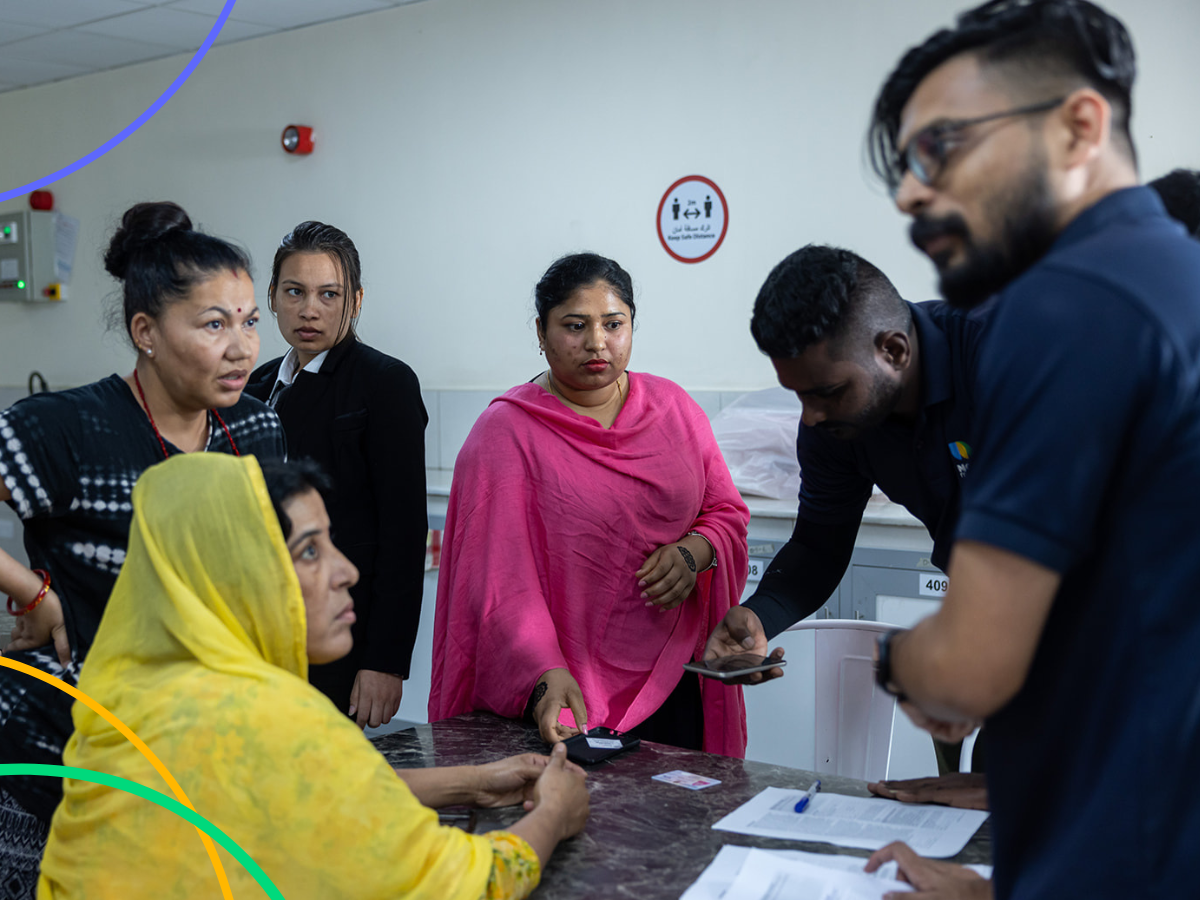Individuals, governments, and companies must invest more in financial literacy because it is essential to improving wealth generation and achieving economic growth and development.
The global financial crisis of 2008-2009 “highlighted the importance of financial literacy and capability, because the lack of consumer knowledge played a role in the genesis of the crisis,” a World Bank study found.
Since then, countries all over the world (developed and developing) have been creating and implementing financial literacy and education projects designed to improve consumer finance knowledge.
The Organisation for Economic Co-operation and Development (OECD), a club of rich countries, has reported that 59 countries across the world now implement coordinated national strategies to increase financial literacy. The OECD itself has also published a policy handbook to help aid such strategies.
But financial literacy is not only a national project.
At the personal level, someone like Warren Buffett, an American businessman considered one of the world’s most successful investors, has emphasised that “the most important investment you can make is in yourself.” And there has been a significant rise in financial education resources (blogs, videos, podcasts, books) designed to help people attain financial literacy.
It is no wonder then that in the US, it is now high school students themselves that are requesting for personal finance education in their syllabus, according to a report by CNBC, a news website.
But is all this effort worth it? Asked differently, why is financial literacy important?
In this article, we will consider seven reasons why financial literacy is important and why individuals and governments in the GCC must pay more attention to it.
1. It helps individuals take charge of their finances
The inability to take control of one’s finances can have many unpalatable consequences – rising consumer debt (credit card, mortgage, student loans, car loans, etc.), no savings to deal with emergencies, living from hand to mouth, no significant investment for the future.
More significantly, these are not the maladies of only developing countries. Consumer debt is rising in the US; millions don’t have enough savings to deal with emergencies; and many don’t have enough retirement savings.
As a case in point, Citi Bank reported in 2019 that 46.7% of the UAE population is in debt. And in the GCC as a whole, consumer debt increased by 80% between 2002 and 2010 as people struggled to save enough to meet financial emergencies or plan for the future.
As many recognise the serious effects of poor planning, they have turned to financial education resources to help them gain control of their money.
By learning how to prepare a budget, create an emergency fund, pay off debt, and consistently save towards retirement (among other financial literacy skills), many are now getting a grip on their finances and enhancing their financial health.
In addition to financial planning firms, various fintech platforms in the UAE, for example, have been helping people gain this control over their finances.
Payroll platforms like NOW Money help to ensure that workers get their salaries paid into a no minimum-balance mobile bank account, where they can then easily track their spending and access basic but important services, such as international money transfers and international mobile recharge.
And there are other apps helping people budget and automatically save into their savings account or investment app.
In essence, the more financially literate people are, the better they get at money management and the more they employ various financial products designed for this goal.
And as people are now more responsible for their own financial welfare, the need to take control through financial literacy is even more important.
2. It is foundational to wealth building
Building wealth requires two main things: saving consistently and investing wisely.
In the first place, by helping people achieve financial stability, financial literacy prepares them to save consistently. For example, those who use the popular 50/30/20 budget method can plan to consistently save 20% of their income every month. This is the foundation of wealth building.
The next thing is to wisely invest the money saved in profitable assets.
Here, again, financial literacy is important. Investors who do not understand the reward and risk dynamics, for example, can easily become prey to scammers who promise heaven on earth, only to run away with people’s money. As the OECD puts it, “individuals will not be able to choose the right savings or investments for themselves, and may be at risk of fraud, if they are not financially literate.”
This is one reason why there has been a proliferation of various savings and investment scams in the GCC, with many honest but financially illiterate people falling victim.
“Never invest in a business you cannot understand,” said Warren Buffett. Why? Because, according to him, “risk comes from not knowing what you are doing.”
Consequently, investing wisely requires that the investor understands basic financial concepts, financial markets and financial assets. Also, the investor must pay attention to the principles of successful investing that accomplished investors have used over the decades.
Again, financial literacy prepares people to use the various investment products that are designed by various fintech companies to help people invest their money more profitably. “But if individuals do become financially educated, they will be more likely to save and to challenge financial service providers to develop products that truly respond to their needs, and that should have positive effects on both investment levels and economic growth,” according to the OECD.
3. It supports the drive toward financial independence
Many people all over the world want to escape the rat race and become financially independent so they can take control of their own lives without depending on a salary. The UAE is not an exception, with Gulf News reporting that “many UAE millennials strive to achieve financial freedom by the time they turn 45 or 50.” Zawya also reported a study by Saudi Arabia’s Family Council that 33% of Saudi Arabia youths are doing freelance work in a bid to attain financial independence.
But attaining financial independence depends on building wealth. The earlier one starts to build wealth, the greater the chances that one can achieve financial independence.
As Jim Rohn, a personal finance author, puts it, “to become financially independent, you must turn part of your income into capital; turn capital into enterprise; turn enterprise into profit; turn a profit into an investment, and turn the investment into financial independence.”
And we have seen that taking control over one’s finances and investing wisely are the two components of wealth building, components that depend on the level of financial literacy.
4. It fosters better risk management
“To become more active and confident participants in the financial sector, consumers need awareness, understanding, and knowledge about various types of rapidly evolving financial products and services and associated risks, such as fraud and overindebtedness,” said the World Bank.
“As the variety and complexity of financial products and services increases, the importance of the financial capabilities of consumers becomes even more significant for the smooth functioning of financial markets.”
In essence, the World Bank believes that the way to prevent another financial crisis is to train consumers to be more financially literate so they can better evaluate the risk of various financial products.
Relatedly, financial literacy “allows an individual to be better prepared for specific financial roadblocks, which, in turn, decreases the chances of personal economic distress,” according to the Corporate Finance Institute.
For example, financially literate people have emergency funds where they can draw money to meet financial emergencies instead of incurring credit card debt (for example). Also, they have insured themselves and their assets against certain risks by subscribing to insurance plans.
As more people are better able to improve their decision-making and manage financial roadblocks without falling into an economic distress, the entire nation will also be less porous when those roadblocks occur.
To conclude, “financial literacy is a basic need for everyone to avoid financial problems,“ according to an article published in The Business and Management Review. “Financial difficulties may arise in the event of mismanagement. Having financial literacy is the most important thing to gain a prosperous life. With proper financial management supported by good financial literacy, the standard of living of the people is expected to increase, because no matter how high a person’s income level is, without proper financial management, financial security will be difficult to achieve.”
5. It aids in financial inclusion
The problem today is that financial inclusion has been treated as solely a supply problem for many years. That is, providing more financial products to the population was seen as the way to improve financial inclusion.
In response, various GCC countries have sought to provide resources that will help various fintechs develop products and services for the populace. For example, the UAE launched its Fintech Hive, a hub created by the government for fintech startups.
However, the World Bank has always recognised that financial inclusion also requires that people access and use these products and services.
Or as the German Institute for Economic Research puts it, “while the resulting so-called ‘account ownership’ rate, i.e., the share of the adult population which owns an account, still dominates the debate, it is clear that ownership is not enough. Of course, ownership is important, especially if it is costly (and even opening an account is costly in a strict sense), but there are two further levels of financial inclusion beyond the basic one. The second, intermediate level of financial inclusion is the active use of an account. The third, advanced level means that financial services are used in a rational way.”
These two further levels of financial inclusion require “improving the demand side of financial markets,” according to the Institute.
“Microeconometric studies, often randomised controlled trials, show that financial literacy has a causal effect on financial inclusion; educated individuals understand the advantages of financial services better but also feel more confident about contacting providers.”
The Union of Arab Banks agrees: “Low levels of financial inclusion are usually associated with lower levels of financial literacy, hence financial education is necessary to facilitate access to and encourage the use of relevant financial products and services.”
In essence, financial literacy leads to greater demand for and usage of financial products. And as demand and usage increases, financial inclusion surges.
6. It enhances income equality
Dr. Joanne Li, professor of finance at Florida International University, has identified financial literacy as a precondition for improving the financial lot of underserved communities.
“Financial literacy empowers communities,” he said. “It will lead to food security, a stronger and educated workforce, which translates into a lower crime rate, fewer foreclosures in our neighbourhoods, less stress in our lives and happier individuals and families. In financially capable communities, everyone benefits.”
Since financial inclusion reduces income inequality, financial literacy, increasing the former, reduces the latter.
“National strategies for financial education could be useful to achieve economic equity in those countries where financial knowledge levels are low,” according to an article in the Journal of Knowledge Economy.
This also applies to developed countries since the Institute of Labour Economics have concluded that “the level of financial literacy in developed countries is low and contributes to growing wealth inequality.”
7. It promotes economic growth and development
By increasing the demand and usage of various financial products and services and expanding the level of investment in the country, financial literacy can potentially improve a country’s economic growth.
An article in Economics, a journal, concludes that financial literacy can improve the financial wellness of individuals which then “ triggers a positive impact on the economic growth of countries and their sustainable economic development.”
The German Institute of Economic Research, quoted above, also recognised the importance of financial literacy to economic growth via financial development.
“Financial inclusion can be seen as the more inclusive and far-reaching extension of financial development,” they said. “Like financial development, it has a number of positive benefits, such as increased growth and lower rates of inequality within a country. It is therefore a desirable policy goal from an individual as well as from a macroeconomic perspective.”
In fact, the International Monetary Fund (IMF) believes that “further financial inclusion is likely to be associated with stronger economic growth in the GCC countries.” As Arabian Business puts it, “individual financial literacy is part and parcel of collective prosperity.”
Individuals must, therefore, take charge of their financial literacy by investing in various financial education resources. Governments must also contribute by designing and executing national strategies that will shift financial literacy upwards.
Companies in the GCC, for their part, should also do their best to improve the financial literacy of their employees. One way they can do this is by encouraging them to use financial products that will improve their financial wellbeing.
For example, workers of companies in the UAE that now use NOW Money’s digital payroll will gain access to mobile bank accounts. And, as we have discussed, such mobile bank accounts, where they can receive their remuneration and track their spending, is the starting point of responsible financial management.
In this way, these companies are contributing to the quest for improved financial literacy. Today, more than 450 companies are already working with NOW Money and providing mobile accounts to over 76,000 workers in the UAE.
[Do you want to help your employees gain access to personalised mobile bank accounts and set them on the path towards better financial management? Sign up for NOW Money’s smart, flexible, and cost-effective payroll software or learn more about our mission to provide equitable bank access in the UAE.]
Takeaways
- Attaining higher financial literacy levels is now an important goal pursued by individuals and governments.
- Why is financial literacy important? It helps individuals take charge of their finances, build wealth, become financially independent, and better manage risk.
- At the national level, financial literacy also aids financial inclusion, enhances income equality, and promotes economic growth and development.
- Consequently, individuals, governments, and companies in the GCC must keep investing in financial education to achieve even higher levels of financial literacy.







